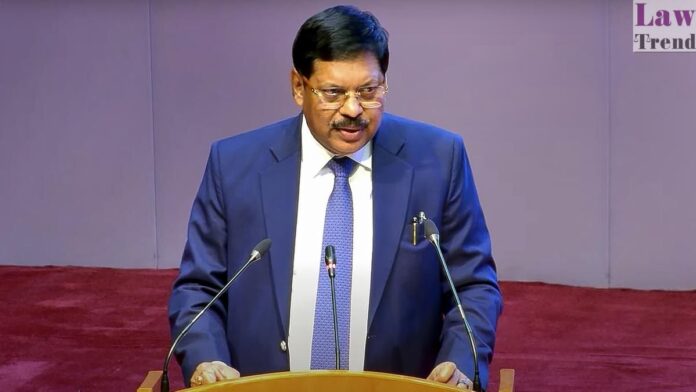Chief Justice of India (CJI) B R Gavai on Friday underscored the judiciary’s vital role as a bridge between the aspirations of citizens and the ideals enshrined in the Constitution. He was speaking at the Nepal-India Judicial Dialogue 2025 in Kathmandu.
CJI Gavai stressed that courts are not confined to resolving disputes but are equally tasked with ensuring that justice, equality, and human dignity are upheld in practice. “In both countries, the judiciary serves as a bridge between the aspirations of the people and the ideals enshrined in the Constitution,” he said.
Highlighting the evolving role of courts, Gavai described the judiciary as both a guardian of democratic foundations and a catalyst for reforms. By interpreting law in light of contemporary challenges, he said, courts could inspire public trust, guide governance, and reinforce the values that sustain democracy.
“This evolving role represents a significant broadening of the judiciary’s traditional function, which was largely limited to strict interpretation of statutory provisions. Today, however, the judiciary is increasingly called upon to go beyond mere textual application, engaging with the deeper purposes and consequences of the law,” he observed.
The CJI also highlighted how the Supreme Court has gone beyond pronouncements by initiating administrative and institutional reforms. Innovations in case-flow management, digital infrastructure, and access-to-justice mechanisms, he noted, have shaped a judiciary that is “responsive, efficient, and inclusive.”
Pointing to India’s rapid digital expansion, with internet penetration reaching over 95% of villages and subscriber numbers growing nearly 280% between 2014 and 2024, Gavai said the COVID-19 pandemic had accelerated technology-driven reforms, including in the justice system. “The role of the judiciary, both on the judicial and administrative side, has thus evolved to address emerging challenges and promote access to justice,” he added.
Emphasising the importance of international cooperation, Gavai said that in a globalised world, judiciaries must learn from each other. “Such exchange of knowledge and experiences has become a necessary element for the growth and effectiveness of modern judiciaries,” he noted.




